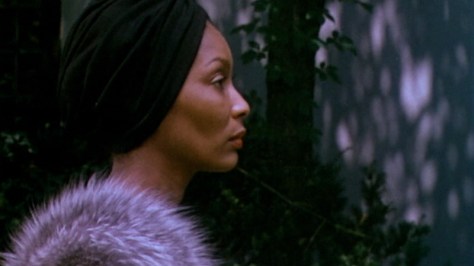
Format: Blu-ray + DVD
Release date: 8 February 2016
Distributor: Arrow Video
Director: William Girdler
Writers: William Girdler, David Sheldon
Cast: Pam Grier, Austin Stoker, D’Urville Martin
USA 1975
90 mins
Pam Grier’s third outing as a tough 70s Blaxploitation action lady is fun although not as exhilarating as Coffy and Foxy Brown.
After the breakout success of Coffy and Foxy Brown, Pam Grier had become hot property in mid-1970s Hollywood, with studios keen to snap up the head-turning Blaxploitation star. She was, after all, the first African-American woman to become a bona fide leading lady – and she kicked serious butt.
Sensing they might lose her, American Independent Pictures (AIP) ensured she retained lead billing status, with this third round of low-budget action pandering to some extent to her request for less sleaze and more story. As a result, it lacks the gritty charm of those previous outings, although Grier still holds her own with ease.
The story, such as it is, pitches Grier as a private investigator out to beat a local crime pin (D’Urville Martin) who is plotting to do in her dad. The action is set in the director’s hometown of Louisville, Kentucky. Helped by her father’s business partner (Austin Stoker), who has a soft eye for her, Sheba’s pursuit of justice ensures car smashes and explosions galore, with some neat gun play between the sexes along the way. It is as one would expect: fast, frothy and funky (Monk Higgins’s score works well).
Although it received mixed reviews upon its original release in 1975, Sheba, Baby marked the peak of Grier’s screen career, prior to her return in Quentin Tarantino’s Jackie Brown more than 20 years later. Blaxploitation became increasingly divisive among the black community with its stereotypes and motifs, before being hijacked by the studios in the years that followed, with stories perpetuating sexual violence and slavery (Mandingo and Drum) signaling the death knell for the genre.
Grier, who began her career as a receptionist at AIP, has endured as the popular face of Blaxploitation over the years. Even this relatively lightweight vehicle shows the star in her element, delivering a series of no-nonsense responses to thugs that dare cross her path. It’s a shame that no one has managed to match her on screen in the decades that followed. Even more than that, it’s depressing and familiar to consider that her starring roles all but dried up after her brief flurry of hits – and that her leading lady status never quite materialised as it should have.
Still, as a companion piece to Coffy and Foxy Brown, it’s worth a spin. Grier is always great value and, as Tarantino knows only too well, a hugely underrated talent. This anniversary set comes with a high definition print of the film, plus a commentary and interview with screenwriter-producer David Sheldon, and featurettes on Grier and the film from critics and enthusiasts.
Ed Gibbs
Watch the Arrow Video Story:


